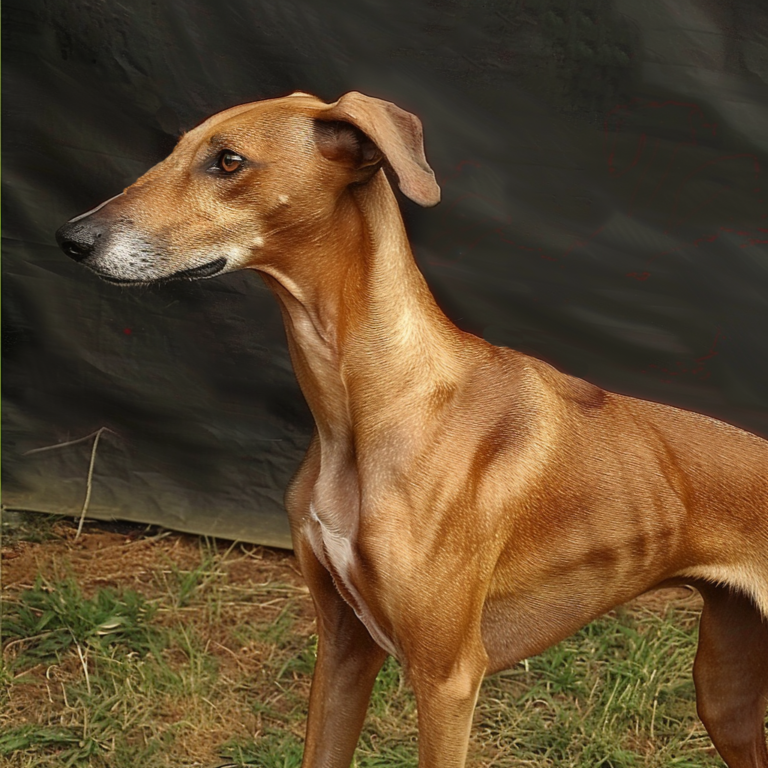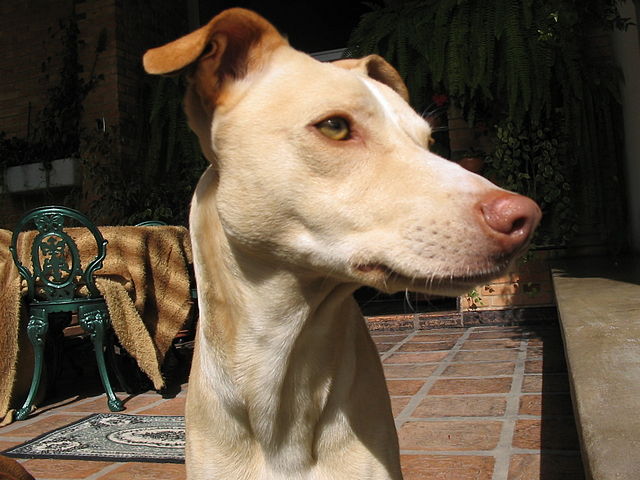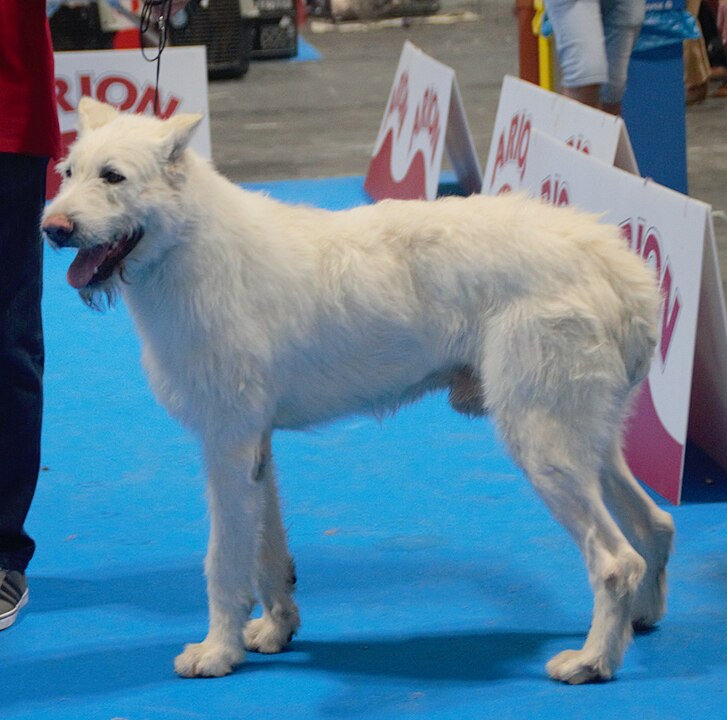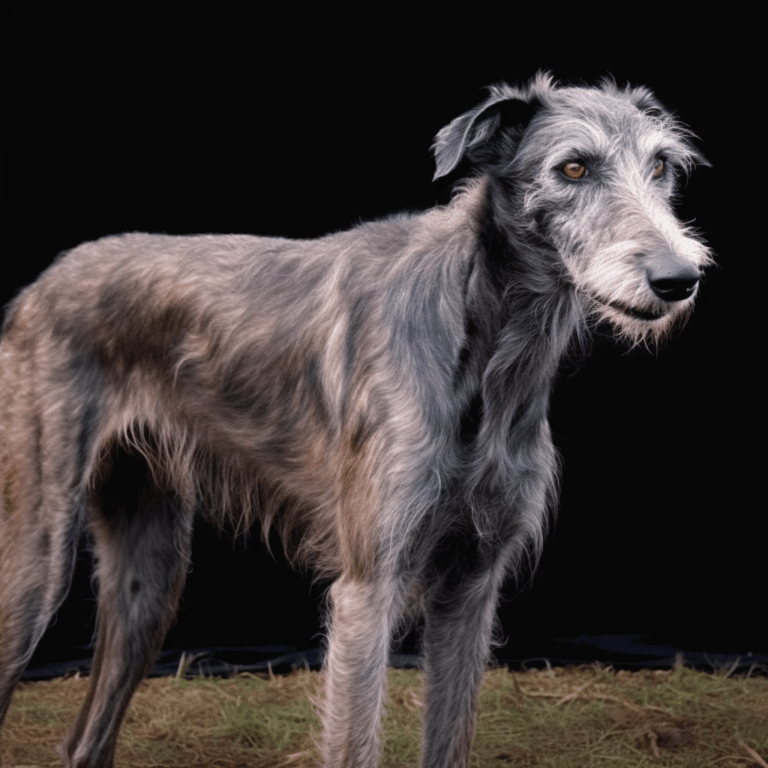The Whippet is a medium sized sighthound with a personality somewhere between that of a cat and a dog. His temperament and needs make him the absolute perfect companion for some homes, yet a bad match in others. A prospective owner should be aware of all of his quirks before buying. Whippets are incredibly gentle dogs in every situation, with the exception of when they are hunting (more on this later). They are affectionate to their families without being too much to handle. While some will greet you enthusiastically after you return home from work, most are happy to greet you politely and then follow you around the rest of the day.
Whippets are incredibly loyal and attached to their families, almost to a fault. Because they get so attached, separation anxiety can be an issue for theses dogs. This can lead to destructive behaviors in the house, or if they are crated, destructive behaviors while in a crate. The best cure for this is good prevention, although it may take longer for you to crate-train a Whippet than other breeds. Struggling to find the right crate? The Petmate Vari Kennel is designed with your Whippet’s comfort in mind – https://amzn.to/3B3CUE6
The only other destructive behavior worth talking about concerning Whippets, is chewing. Young puppies in this breed (like many breeds) can be slightly destructive, and will most likely try to chew everything they can get their mouths on. Make sure to keep anything dangerous out of their reach, supervise them at all times, and provide them with appropriate toys to enjoy instead.
Most get along well with other dogs, and they can get along fine with indoor cats as long as they are raised with them. Outdoor cats can be a different story, as a running feline will trigger the chase instinct. They are also generally good with children, although kids must be taught to treat the dog fairly. With visitors, they are normally happy to greet although it may take them a little while to warm up to a stranger. In no way do they make good guard dogs for they are just too good-natured. At most, a Whippet might bark at a stranger at the door, but even that is 50-50. Most Whippets are generally fairly quiet, although there are exceptions in certain lines.
Some Whippets are incredibly picky eaters while others will gorge on food, causing obesity. Obesity is a problem for all dogs, but especially for Whippets since their frame is meant to be thin. To help with the last problems, free-feeding is not recommended. Instead, put a bowl down with the appropriate amount of food, and give them 15 minutes or so to eat. As far as the pickiness, try not to cater to the dog by switching his food around all of the time. Instead surprise your furry friend with a fun and durable Benebone from time to time, outside of meal times – https://amzn.to/410F5TG
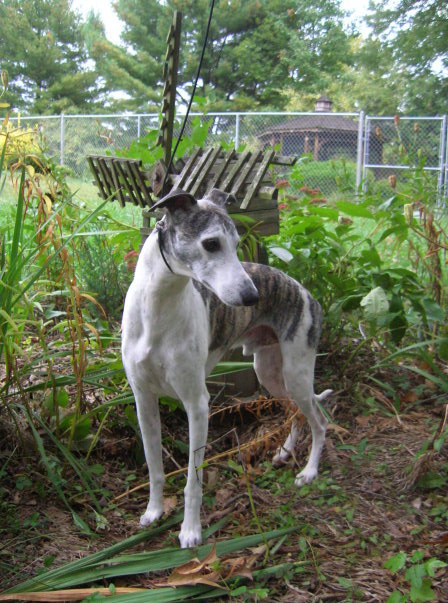

Their thin coats and low body fat make them susceptible to the cold. A Whippet should never be left outside for long periods of time in the cold, and they should be provided with a coat while out on walks or outings in inclement weather. Even if the weather is nice, do not keep him outside all day. Whippets are sensitive, indoor-loving dogs who need to be with their families in order to be happy. The breed does not do well if kept as outside-only pets, they do much better with cushions, blankets and warm beds. Whippets are true coach potatoes and lovers of comfort.
A fence is highly recommended for this breed because of their very high prey drive. Small animals will cause them to take chase, and they will be out of your yard in seconds if no fence is in place. Their chase instinct is incredibly strong and they have been known to run for miles if given the opportunity. A loose Whippet can get very far from home in a short period of time, and is at a high risk of being hit by a car. For this reason, many responsible breeders will not sell to someone who does not have a secure fence. It is worth mentioning that invisible fencing is not a good substitute, as Whippets on the chase will run straight through.
There are numerous activities that you can enjoy with your Whippet – namely agility, therapy work, rally, lure coursing, straight racing, oval racing, flyball, disk dog competitions, nosework, conformation, tracking, and barn hunt. And then, of course, there is obedience. While the Whippet is not the most sought-after canine for competition obedience (the repetition of the training and the trials can make him bored), he can do well if properly trained. The most important thing about training Whippets in obedience is to keep it interesting and fun!
Lastly, it is important to give them daily exercise, but all-in-all, despite their athletic frames they do not require an abundance of work to keep them fit. Whippets are sprinters and not long-distance runners, which means they don’t require 5-mile walks every day. Many will spend a short period of time racing all over the yard only to come back inside for a long nap. Napping is a favorite activity of Whippets.
Affiliate Disclaimer
As an Amazon Associate, I earn from qualifying purchases. This means that if you click on an affiliate link on this site and make a purchase, I may earn a small commission at no additional cost to you. Rest assured that I only link to products I have used, or use on a regular basis, and trust enough to recommend them to you!
